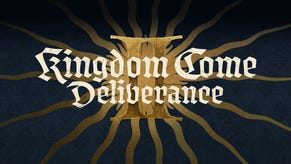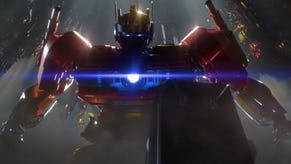Dinosaur E3 faces its Ice Age: why ESA must act now
If ESA doesn't quickly reinvent the E3 format we will see the show die, says Patrick Garratt. E3 2012 represented a transition from “losing relevance” to “meaningless,” and the entire industry is losing patience.
As the big-name component consolidates, the freeze deepens. E3 is a dinosaur facing the Ice Age. It represents an old marketing model draped with booth babes, a consumer show parading as trade for the good of no one.
It’s hardly a secret that E3 2012 was terrible. This year we saw all the warning bell characteristics from 2011 accelerated to a DEFCON level of awareness, with, as predicted, a small group of triple-A products fighting for eyeballs while the “something else” section of the show continued its inexorable fade to nothing. As a result, there was even less variety on display for the next 12 months, and the games making their gen-end play were so risk-averse as to blur into one.
E3 has lost relevance to the overall market to such a degree that it's hard to believe it can survive in its current form.
The week wasn’t helped by the fact that Nintendo blew its opportunity to show Wii U is a safe bet. The firm tried to launch its next generation console to the world with Pikmin 3, a Batman game everyone’s already played, a zombie shooter, another Mario, another Wii Fit and a virtual theme park. Unsurprisingly, many weren’t so much unconvinced as openly hostile. Wii U will launch in less than six months. This was the final pitch to the west. If Reggie and friends are aiming at the “hardest of the core,” they’re about to be in for a terrible shock.
But at least the Wii U games contained the innovation of the second screen. For the most part the titles we saw in the core conferences were barely distinguishable. The triple-A market is being squeezed through the eye of a creative needle to the point where projects are apparently unreasonable if they don’t feature a terrifying level of violence; people shouting “f**k”; a cover mechanic; characters being barraged with buckshot from behind some bullet-proof table; and a person being shot in the face at pointblank range. Tomb Raider, The Last of Us, Splinter Cell, Gears of War, Star Wars 1313, Watch Dogs and Dead Space are all highly-polished variations on exactly the same theme. Despite being dressed in various aesthetics, they’re the same game.
This, though, isn't E3's problem. There's a large market for these games (VG247 aims at it) and that's why they exist. The main reason E3 was such a crushing disappointment this year wasn’t because triple-A is samey; it was because the show itself became even more irrelevant to the wider games industry than last year. E3 is a failed show format that excludes a huge part of the games trade. Yes, of course E3 should be home to triple-A, but it must also cater to casual, and browser, and mobile, and indie. It has to have a PC hall. It has to be a consumer show with a business section, like gamescom, which is relevant to the public, the trade and the media. E3 means nothing to anyone any more.
Take Nintendo. It's difficult to find the point in the Wii U software showing. Nintendo was forced to hold two separate conferences outside of its main press event, as if there needed to be any clearer indication that the E3 model is intrinsically broken. Wii U flopped badly, at least in terms of mindshare, with some going as far to call the entire pitch an “embarrassment,” but Nintendo is essentially a casual games firm. Wii U won’t succeed because of core games, and you should be well aware of that by now.
Logically, then, if Wii U’s real success won’t come from the message it was trying to convey at E3, Nintendo didn't even need to turn up.
Deep freeze
There was no talk of mobile gaming. And there was no talk of PC. Again, E3 proved it’s incapable of being anything other than a triple-A publishing show. As the big-name component consolidates, the freeze deepens. E3 is a dinosaur facing the Ice Age. It represents an old marketing model draped with booth babes, a consumer show parading as trade for the good of no one. We've been here before. Why do companies like EA bother? Electronic Arts, to take an example, is healthy through growth in digital, a savvy company well aware of how quickly the market’s shifting. What does E3 give EA? Or Ubisoft? Or THQ? Coverage? Haven’t we learnt from the Q4 release crush just how diluted messages get in a crowd? Aren’t we just back at the situation that crippled E3 last time? Maybe it’ll take JR to walk out again before ESA gets off its ass and actually does something.
Many of my journalism peers didn’t even bother watching E3 this year. We knew what was going to happen, and there were no shocks. We didn’t put people in the press conferences this time, and none of the core VG247 team visited LA. We used freelancers for the show itself, freelancers who turned up for their meetings, were crushed into demos, weren’t allowed to play games and half the time didn’t get interviews. We got what we needed in the main, but from a media business standpoint, E3 in its current format is a complete f**king farce. “Video games” has changed dramatically in recent years, and E3 has failed to adapt.
E3 2013 will be exciting as it’ll host the next gen console reveals, but the character of the entire event needs to change dramatically. How many times do people have to say it? Go fully consumer but have a trade hall. Become inclusive to the rest of the trade. Move to Las Vegas so everyone has plenty of hotel space in a compact location. Ban booth babes. Grow a brain. Listen, ESA, before your ludicrous show loses all relevance and your woolly mammoth bones crumble into the frost. You’re making the final transition from “losing relevance” to “meaningless,” and gamers, the industry and the media are rapidly ceasing to care.










